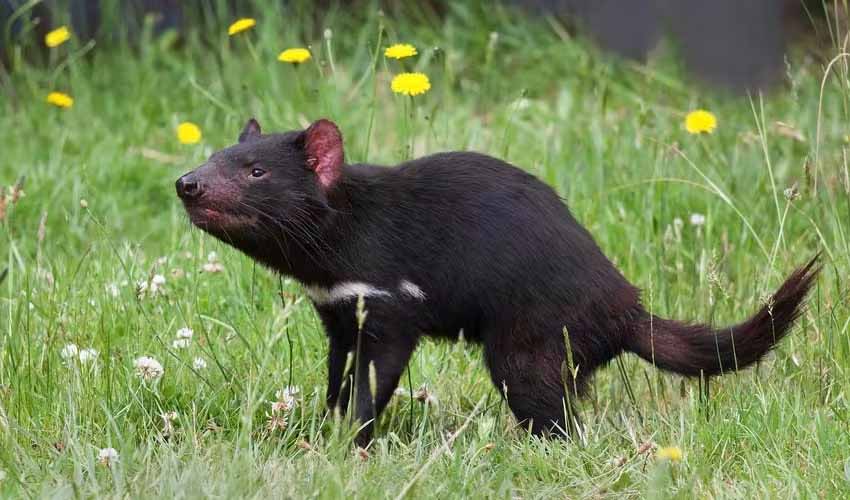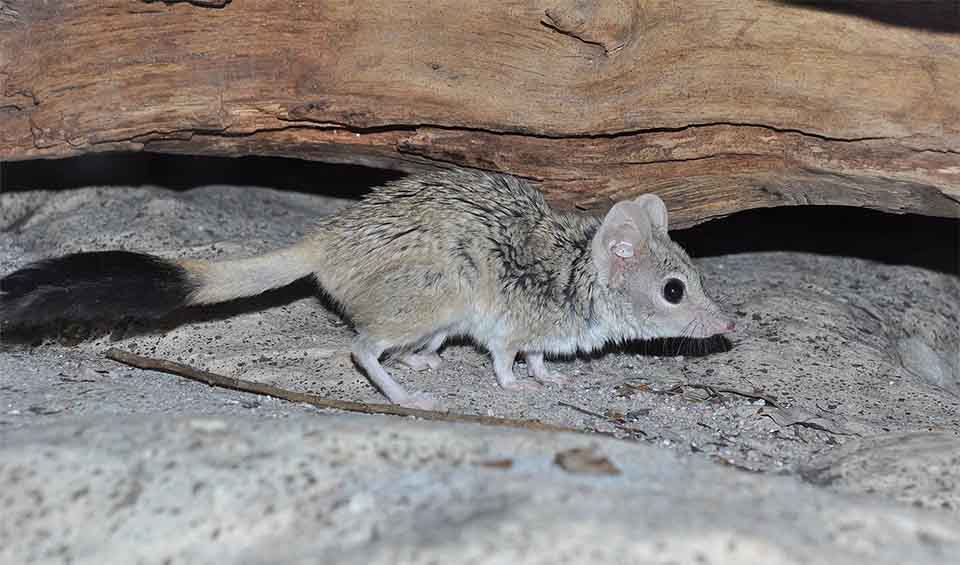Dasyuridae – Marsupial mice
The only true carnivorous marsupials with seven pairs of incisors – for biting and cutting
Comprising marsupial mice, antechinuses, quolls, and the formidable Tasmanian devil, it embodies a fascinating and diverse group of carnivorous marsupials native to Australia and New Guinea. Despite the significant variation in size within this family—ranging from the diminutive 2-gram (0.07-ounce) planigale to the robust Tasmanian devil, weighing in at nearly 8 kg (17.5 pounds)—these creatures share several physical and ecological traits that underscore their adaptability and ecological roles across various habitats.
Dasyurids are characterized by their pointed snouts and sharp, carnivorous teeth, adaptations well-suited to their predominantly insectivorous diets. However, their dietary habits are not restricted to insects alone; many species exhibit remarkable dietary flexibility, consuming a variety of prey, including small mammals, reptiles, birds, flowers, and fruits. This opportunistic feeding behavior allows dasyurids to exploit many ecological niches.
The habitats of dasyurid species are equally diverse, spanning grasslands, forests, arid landscapes, and mountainous regions. Some members of the Dasyuridae family have even adapted to a fully arboreal (tree-dwelling) lifestyle, showcasing their remarkable versatility. The ability to thrive in such varied environments is a testament to the evolutionary success of the dasyurids, allowing them to occupy a significant role in the ecological dynamics of their ecosystems.
One of the most intriguing aspects of dasyurid biology is their reproductive strategy. Many species, particularly the smaller antechinuses, engage in a unique phenomenon known as semelparity, where males die after their first breeding season due to stress and exhaustion. This extreme reproductive strategy underscores the intense selective pressures these animals face in their environments.
The Tasmanian devil (Sarcophilus harrisii), the largest extant member of the Dasyuridae family, is perhaps the most well-known. Notorious for its ferocious temperament and powerful jaws, the Tasmanian devil plays a crucial role as a scavenger, consuming the carcasses of dead animals. This behavior not only helps to keep their habitats clean but also controls the spread of disease.
Genera in this family
Some species of this genus can weigh less than 5 g (0.15 oz) and are the smallest marsupials
Already became extinct in the Northern Territory, now limited to NE South Australia and SW Queensland
‘Taz,’ the ecstatic character of ‘Loony Tunes’, is a Tasmanian devil
Petite in size but feisty hunters in miniature
These animals have communal toilet areas on an outcropping used for marking territory and social functions






